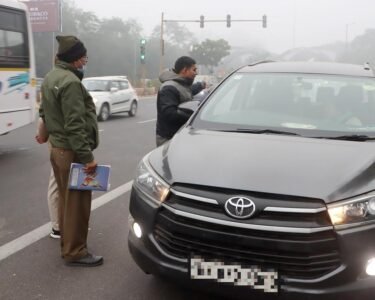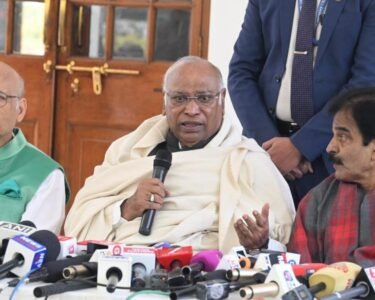Introduction
In a dramatic escalation of political maneuvering, the two main political parties in Andhra Pradesh—the YSR Congress Party (YSRCP) and the Telugu Desam Party (TDP)—have reportedly taken the unusual step of sending their abroad ahead of a no-confidence motion against the Greater Visakhapatnam Municipal Corporation (GVMC) Mayor, G. Hari Venkata Kumari. This strategic move highlights the growing political instability in Visakhapatnam and the high stakes surrounding control over the civic body.
Political Realignments Triggering Chaos
The GVMC, one of the most significant municipal corporations in Andhra Pradesh, has seen increasing political turbulence since the change in government at the state level in 2024. While the YSRCP originally secured control of the GVMC with 58 of the 98 wards, recent defections and party switching have drastically changed the power dynamics. The TDP, along with its ally Jana Sena Party (JSP), has been steadily gaining influence, causing concern among YSRCP leaders about losing their grip on the council.
YSRCP Corporators Sent to Sri Lanka
Sources close to the YSRCP leadership confirmed that several of their corporators have been flown to Sri Lanka. This is believed to be a preemptive strategy to shield them from political pressure, offers, or persuasion from rival parties during the no-trust motion process. The party fears further defections could tip the balance in favor of the opposition.
The sudden disappearance of these corporators raised eyebrows and added to the already heated political environment. This move suggests that the YSRCP is taking no chances, especially as it faces increasing dissent from within its own ranks.
TDP Corporators Moved to Malaysia
Not to be outdone, the TDP has also taken precautionary measures by relocating several of its corporators to Malaysia. This step, insiders say, is aimed at maintaining party unity and avoiding potential counter-defections engineered by YSRCP. By moving their corporators to a secure location, the TDP leadership hopes to keep them focused and aligned ahead of the crucial vote.
The No-Confidence Motion Against the Mayor
The no-confidence motion at the center of this controversy targets G. Hari Venkata Kumari, the sitting Mayor of Visakhapatnam and a senior YSRCP member. The Mayor has been accused of mishandling funds and allegedly accepting bribes to suppress an investigation into a ₹5 crore scam involving GVMC contracts.
Opposition parties argue that the Mayor has lost moral and administrative authority and must be removed to restore public trust and transparency in the municipal body. They further accuse the YSRCP of attempting to derail the democratic process through behind-the-scenes manipulations.
Growing Wave of Defections
Over the last few weeks, a wave of defections has further weakened the YSRCP’s control over urban bodies across the state. In Kadapa, eight corporators resigned and joined the TDP, citing negligence by the ruling party leadership. Similar patterns are emerging in other municipalities, where dissatisfaction with YSRCP’s top-down governance model is becoming more vocal.
Analysts say the defections are not just political in nature but reflect a deeper disenchantment among local representatives who feel alienated from the party’s inner circle. The timing of these defections—so close to the no-confidence vote—has only intensified the political drama.
Implications for Governance
The ongoing tussle has paralyzed regular governance in Visakhapatnam. Development projects, civic services, and administrative operations have taken a back seat as the focus shifts to political survival and power retention. Residents have expressed frustration over the lack of attention to real issues affecting the city, such as traffic congestion, sanitation, and water supply.
With both major parties more invested in tactical gamesmanship than in governance, the city’s administrative machinery is facing an uncertain future.
Political Strategies in Question
The strategy of relocating corporators to foreign countries has sparked criticism from political analysts and civil society. While parties defend it as a necessary precaution, critics argue it reflects a poor state of democracy where elected officials are treated like pawns. Questions are also being raised about the source of funding for these trips and the legality of such actions.
The Election Commission and state government are under pressure to step in and ensure that democratic processes are not hijacked by such unprecedented tactics.
Conclusion
The political scenario in Visakhapatnam is emblematic of the larger tensions playing out across Andhra Pradesh. As YSRCP and TDP lock horns over control of the GVMC, the city’s residents watch anxiously, hoping for a return to stability and accountability. The outcome of the no-confidence motion will not only determine the future of the Mayor but could also set the tone for municipal politics across the state.







